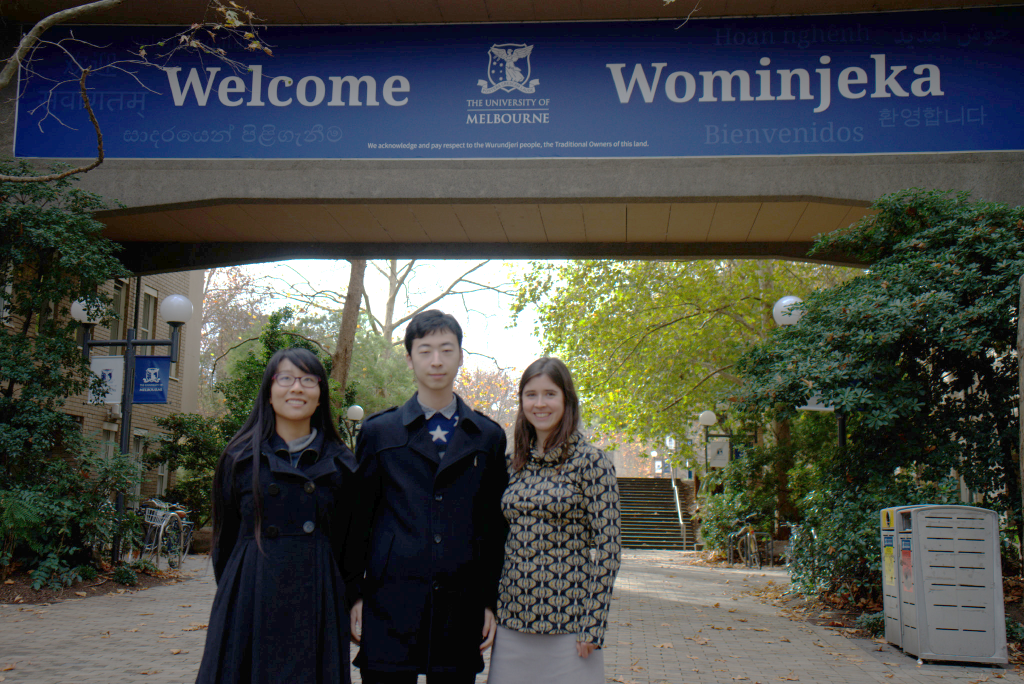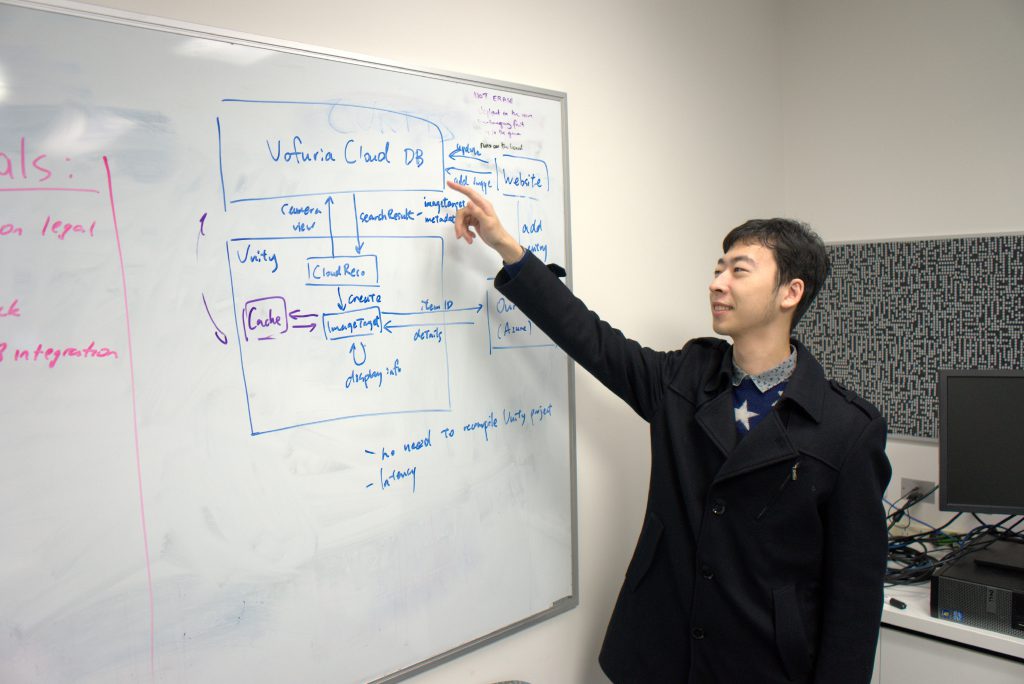SourceLink - creating exciting new mixed-reality shopping experience with information about the producers behind the food we buy
Ever wondered who grows the food you buy in your local supermarket, delicatessen or farm market outlet? Ever wanted to support local producers, and share their experiences? Ever wanted to visit their farm without ever having to leave the store?
All of this may soon be possible. SourceLink, a team of graduate and undergraduate computer science students from Melbourne University, has developed a new app that will provide the background information on the products on the shelves, whether grown or manufactured, in a mixed-reality experience.
The SourceLink team members - Karen Zhang, Jack Qian and Matilda Stevenson - are off to Seattle to compete as the Australian entry in Microsoft's global Imagine Cup competition this coming July.
Matilda is a second year computer science undergraduate. Jack and Karen are second year Masters post-graduate students. They all met at the CodeBrew hackathon held by Melbourne University's Computing and Information Systems Students Association (CISSA) in March this year. In an example of how exciting new concepts can appear when clever people meet and discuss challenges and ideas for the first time, the concept for the app was scoped and conceived at this hackathon.
Microsoft Australia has a partnership with CISSA , and the hackathon acted as a preliminary step to the Imagine Cup Australian finals. The SourceLink team had a pretty tight turnaround between the CISSA hackathon and the Australian Imagine Cup finals, only about five weeks, to get their app developed to a point where they could enter the Imagine Cup. It's been an impressive effort by Matilda, Jack and Karen, and we're very excited about the Imagine Cup finals in July!?
Sharing new experiences: from the store to the field without taking a step
Developed on Unity, a development tool known for gaming and augmented/virtual reality applications, the app in its current concept will enable consumers in-store to use their mobile phone's camera, or a HoloLens or other mixed-reality headset, to scan items of interest. The cameras will identify the product and present information about the producer or farmers, where the produce was sourced, the journey it's taken to get to the store, and more, as a mixed-reality experience. This will allow ethically-minded consumers, who don't necessarily have the time to attend farmers' markets, make informed decisions. The consumer can also provide instant feedback to the producer. The focus is on local Australian producers, bringing their stories to the person in the shop.
"Our aim with the app is to create a very different kind of immersive experience", say Jack, Matilda and Karen. "For specialty stores in particular, we think this is something consumers will love - being able to really share something of the people and companies who produce what they are about to buy, at the point of purchase."?
What excited us about the SourceLink app was how it promised to change the buying experience completely. The team could have gone down the route of connecting data to a barcode and simply provide consumers with information about the product. What they have created is something completely different, that promises something unique. Basically, the app will take the consumer out of the store and into the world of the producer - without having to take a step.
There are two parts to the app: a data management back-end hosted on Microsoft Azure cloud, and the software required to drive the mixed-reality experience.
The app is in its early stages of development and the Imagine Cup will be an important boost to any next steps, but the SourceLink team is taking care not to constrain the app's potential. Food supply chain provenance is just one example of future data that can be included in the user mixed-reality experience. Another is closing the gap between the information required by law, and what consumers actually want to know. And the app can be used with other products and items such as locally-made clothing.
Data management is, unsurprisingly, one of the largest challenges of the project. Caching data store by store is one solution. Another is to use Azure's data scaling capabilities to manage the large amounts of data that any future development of the app would require.
The journey to Seattle
The SourceLink team will be competing against more than 50 other teams from around the world for a first prize of US$100,000 and access to mentoring and guidance from a number of senior Microsoft global executives. For us here at Microsoft Australia, the Imagine Cup is part of a larger, longer-term commitment to student startups, acting as a catalyst to help them achieve their objectives.
The SourceLink team will be flown to Seattle for the Imagine Cup by Microsoft Australia.
As the team members themselves describe it, their app is about bridging the divide between makers and consumers, to restore the social, human side of shopping. Win or lose, their app shows that future shopping experiences are set to change forever.


